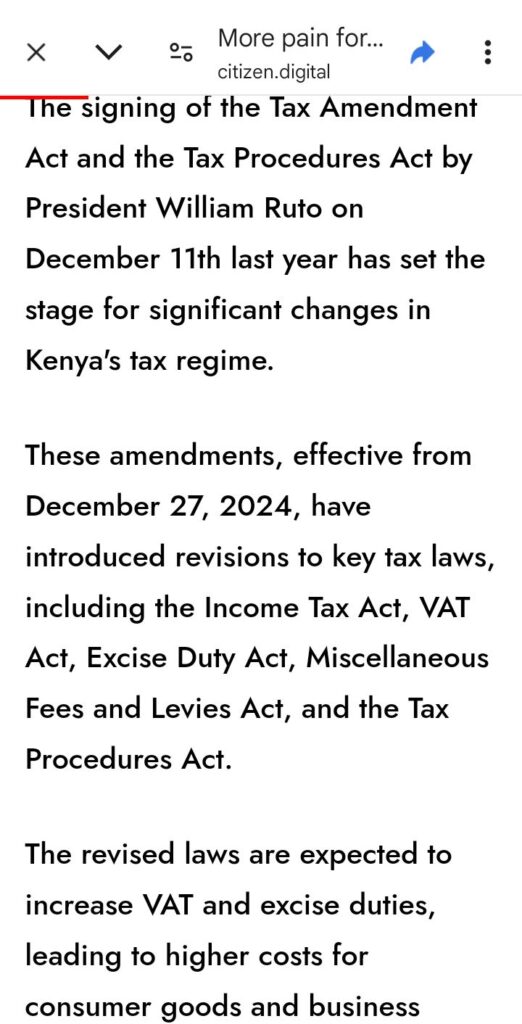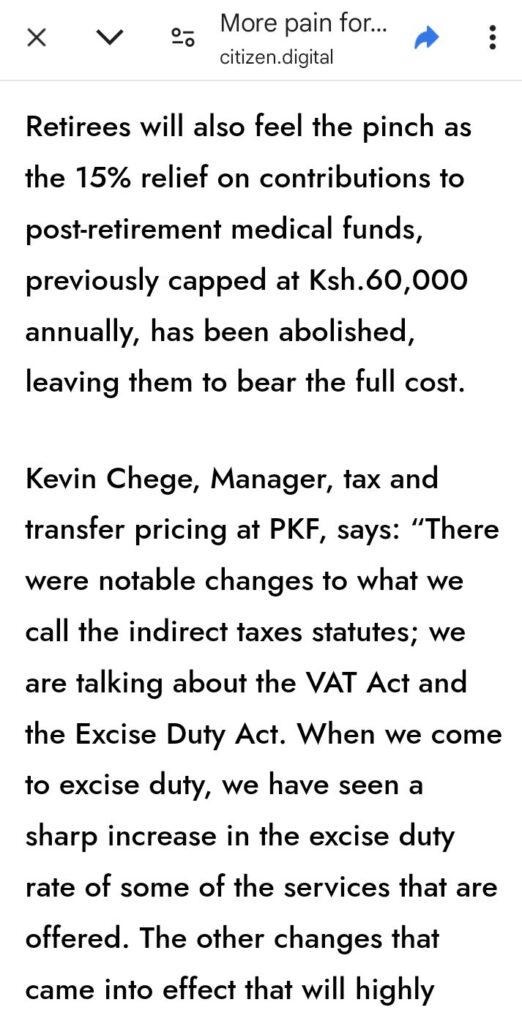The enactment of the Tax Amendment Act and the Tax Procedures Act by President William Ruto on December 11, 2024, has introduced sweeping changes to Kenya’s tax system.
While the government praises these reforms as necessary steps toward economic growth, their impact on citizens and businesses tells a different story.
These laws, which came into effect on December 27, 2024, have triggered widespread discontent.
According to the report by Citizen Digital, Amendments to key legislations like the Income Tax Act, Value Added Tax Act, Excise Duty Act, Miscellaneous Fees and Levies Act, and Tax Procedures Act have caused a ripple effect, raising costs for consumers and businesses alike.

Despite promises of economic empowerment, Kenyans are now bracing for tougher financial times.
The removal of the 15% tax relief on contributions to post-retirement medical funds is a clear example of how these changes have targeted the most vulnerable.
Retirees, who once relied on this relief for medical care, are now left to shoulder the entire burden of their contributions.
This decision has been widely criticized as an attack on the elderly, forcing them to dig deeper into their limited resources.
Salaried employees are also feeling the pinch.
The report further revealed, starting February 2025, the contribution to the National Social Security Fund (NSSF) will double from Ksh.200 to Ksh.400.

While this change is presented as part of the NSSF Act of 2013, it places an additional strain on already stretched household incomes.
At a time when inflation is biting hard, such measures only add salt to the wound for many Kenyan workers.
The digital sector, a growing contributor to the economy, has not been spared.
The government replaced the digital service tax with a big economic presence tax, doubling it from 1.5% to 3% of turnover.
Additionally, the introduction of a 5% withholding tax on digital platform revenues threatens to reduce profitability for businesses operating in this space.

This move could discourage innovation and investment in one of Kenya’s most promising industries.
Despite government claims that these reforms offer opportunities, experts predict a bleak economic outlook.
Instead of providing relief to citizens grappling with the rising cost of living, the government has opted to impose heavier tax burdens.
These policies, hailed as revolutionary, appear to favor revenue collection over the welfare of ordinary Kenyans.
The implementation of these tax changes exposes the government’s priorities, where financial gains seem to outweigh the well-being of its citizens.
While Kenyans continue to endure economic hardship, it remains questionable whether these reforms will truly deliver the promised benefits or merely deepen the divide between the government and its people.





















Add Comment